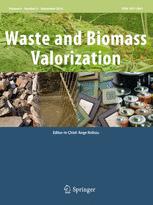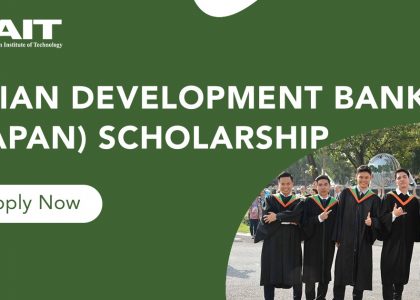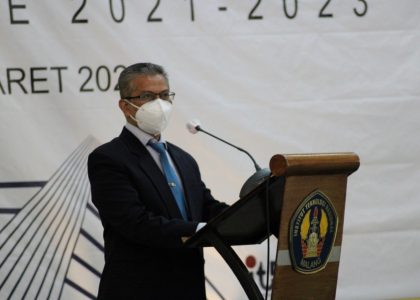A Research Paper entitled “Impact of Subsidy and Taxation Related to Biofuels Policies on the Economy of Thailand: A Dynamic CGE Modelling Approach.”
by Assoc. Prof. Dr. Shobhakar Dhakal, Head of EECC Department, AIT and his fellow co-authors Anuman Chanthawong, John K. M. Kuwornu, and Muhammad Khalid Farooq was published online by Waste and Biomass Valorization Journal, Springer.
Abstract:
 Thailand is the leader in biofuel, biodiesel and bioethanol production in South East Asia, using cassava, sugar cane and palm oil as feedstock. This study used econometric estimation to feed into a recursive dynamic computable general equilibrium model to analyze the impacts of biofuel policies on the economy of Thailand. We carried out several simulations on two set of issues (a) policy of increasing excise tax that consists of 12 scenarios such as increasing excise tax on oil products at a higher rate than biofuel products. The excise tax varies from 10 to 40% and (b) policy of increasing subsidy on biofuel consisting of four scenarios by subsidizing at 10–40% rate. The simulations indicate that increasing excise tax on oil products and biofuel products would increase Thailand’s gross domestic product, social welfare and total energy consumption. For subsidy on biofuel, increasing subsidy would not lead to significant increase in GDP, social welfare and energy factors. These results imply that government should carefully decide on a balance of excise tax and subsidy, but ensure that price of biofuel products cheaper than other oil products to attractive the biofuel consumption.
Thailand is the leader in biofuel, biodiesel and bioethanol production in South East Asia, using cassava, sugar cane and palm oil as feedstock. This study used econometric estimation to feed into a recursive dynamic computable general equilibrium model to analyze the impacts of biofuel policies on the economy of Thailand. We carried out several simulations on two set of issues (a) policy of increasing excise tax that consists of 12 scenarios such as increasing excise tax on oil products at a higher rate than biofuel products. The excise tax varies from 10 to 40% and (b) policy of increasing subsidy on biofuel consisting of four scenarios by subsidizing at 10–40% rate. The simulations indicate that increasing excise tax on oil products and biofuel products would increase Thailand’s gross domestic product, social welfare and total energy consumption. For subsidy on biofuel, increasing subsidy would not lead to significant increase in GDP, social welfare and energy factors. These results imply that government should carefully decide on a balance of excise tax and subsidy, but ensure that price of biofuel products cheaper than other oil products to attractive the biofuel consumption.




